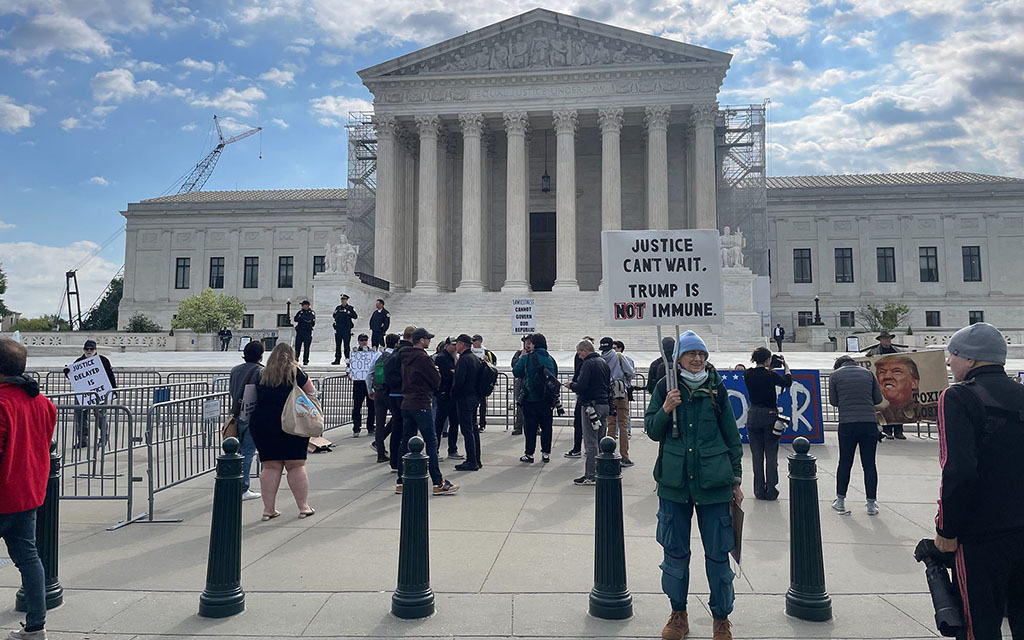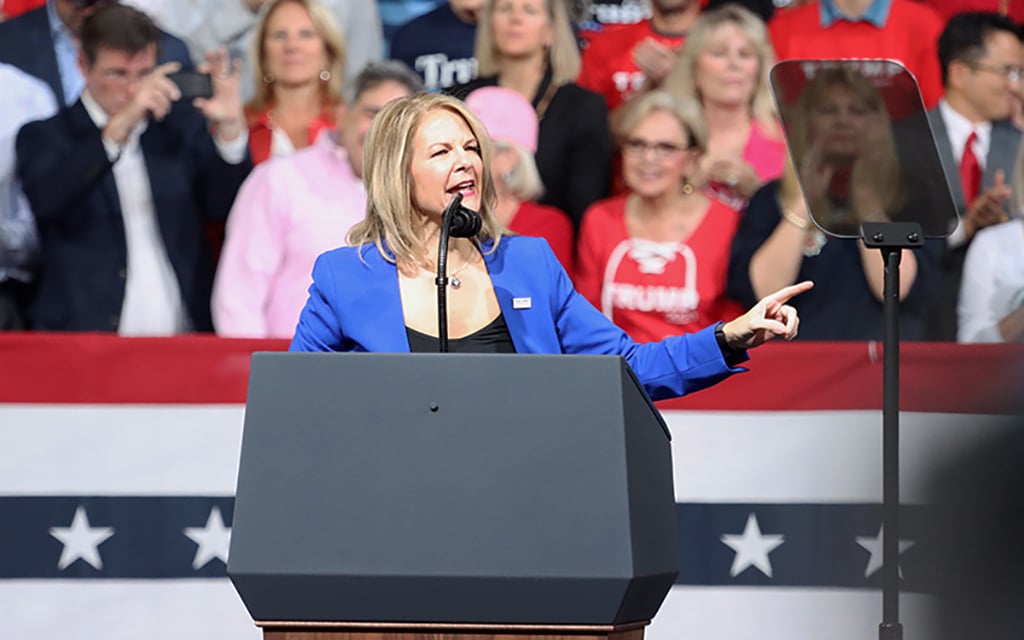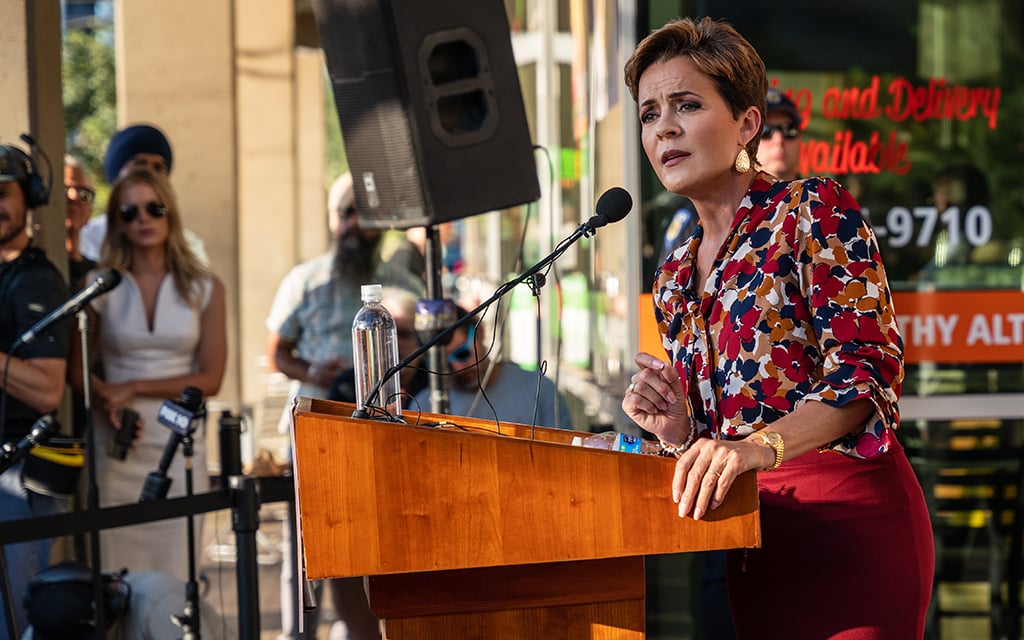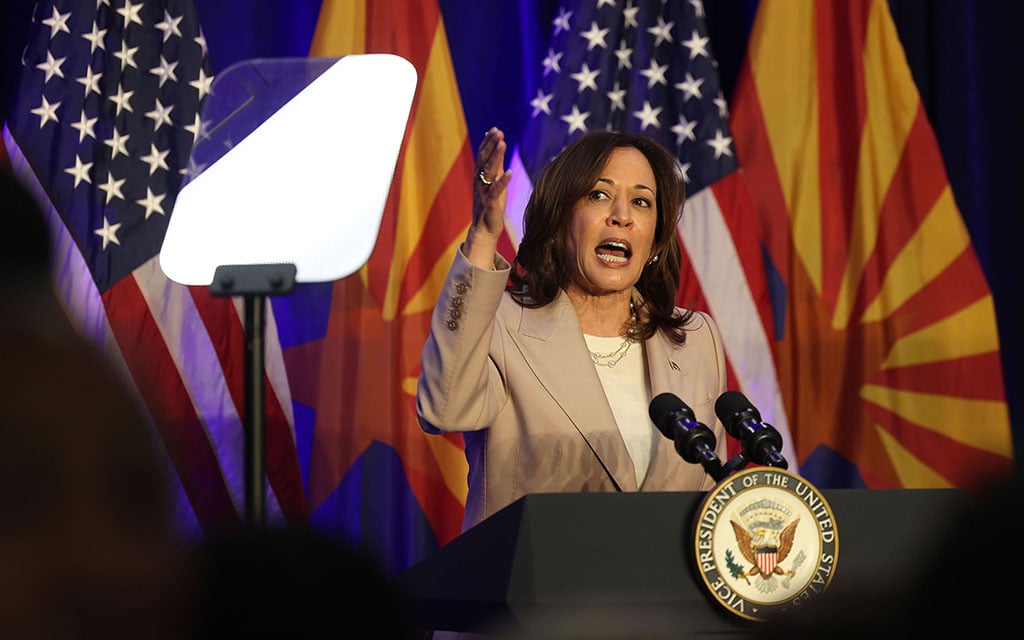WASHINGTON – Eleven top Arizona Republicans were among 18 people indicted on felony fraud, forgery and conspiracy charges for their part in a plan to present themselves to Congress as the state’s presidential electors and throw the election to Donald Trump.
The 58-page indictment handed up Wednesday gives a detailed account of the plan by former state party Chairwoman Kelli Ward, current state Sens. Jake Hoffman and Anthony Kern, and others, to keep Trump – identified as “Unindicted Coconspirator 1” – in office “against the will of Arizona’s voters.”
“The people of Arizona elected President Biden,” Arizona Attorney General Kris Mayes said Wednesday. “Unwilling to accept this fact, the defendants charged by the state grand jury, and other unindicted co-conspirators allegedly schemed to prevent the lawful transfer of the presidency.
“Whatever their reasoning was, the plot to violate the law must be answered for, and I was elected to uphold the law of this state,” she said in a video announcing the charges.
Mayes, a Democrat, said investigators merely “followed the facts where they led.” But Republicans swiftly, and loudly, condemned the indictment as politically motivated persecution timed to land just months before the next election.
“Let me be unequivocal,” Hoffman said in a social media post. “I am innocent of any crime, I will vigorously defend myself, and I look forward to the day when I am vindicated of this disgusting political persecution by the judicial process.
“Kris Mayes & the Democrats’ naked corruption and weaponization of government will long be a stain on the history of our great state and nation,” the Queen Creek Republican tweeted.
The indictment caps a yearlong investigation by Mayes office of events that happened after the 2020 election as part of the post-election “Stop the Steal” maneuvering that led to the Jan. 6 insurrection. Coincidentally, it also landed one day before the Supreme Court heard Trump’s arguments that he should be immune, as former president, from criminal prosecution for his role in the insurrection.
In addition to Ward, Hoffman and Kern, the indictment names Ward’s husband, Michael, Turning Point USA Chief Operating Officer Tyler Bowyer, then-Arizona Arizona Republican Party Executive Director Greg Safsten and Jim Lamon, a GOP candidate in 2022 for U.S. Senate.
Also named are Nancy Cottle, a former member of the party’s executive committee; Robert Montgomery, a former Cochise County Republican Committee official; Samuel Moorhead, a former Gila County GOP officer; and Loraine Pellegrino, former president of the Arizona Federation of Republican Women.
Seven other defendants had their names redacted from the indictment, but will be identified once they have been served, Mayes said. But published reports have indicated that the defendants likely include Rudy Giuliani – identified in the indictment as Trump’s personal lawyer, who was called “the mayor” – and Mark Meadows, “Unindicted Coconspirator 1’s Chief of Staff in 2020,” among others.

Only a handful of protesters turned out Thursday at the Supreme Court, where attorneys for former President Donald Trump argued that he should be immune from criminal charges in connection with the Jan. 6 insurrection. The hearing came one day after an Arizona grand jury indicted 18 people for trying to reverse the 2020 election. (Photo by Ian McKinney/Cronkite News)
The indictment charges the named defendants with nine counts of conspiracy, fraud and forgery for claiming to be the legitimate presidential electors from Arizona, pledged to Trump, in place of the 11 Biden electors who were chosen by voters. Biden beat Trump by less than 11,000 votes out of almost 3.4 million cast in Arizona in 2020.
The Arizona defendants, along with GOP slates of fake electors from other states, hoped that then-Vice President Mike Pence, overseeing the joint session of Congress that counts electoral ballots to officially declare the president, would reject Democratic electors from those seven states. But Pence refused and Biden was elected.
Arizona becomes the fourth state to take action against its fake electors, following indictments in Nevada, Michigan and Georgia.
“There’s been a lot of movement in the key states, you might remember that there were seven states, at least seven states, where the Trump team was really active in trying to get fake electors together to help overturn the election,” said Mike Sozan, senior fellow at the Center for American Progress.
Paul Bentz, senior vice president of research and strategy for HighGround Inc., said the Arizona charges are not surprising even though they have “been a while coming.”
“We heard from Attorney General Kris Mayes that this was something that she was looking into. And as we saw with other states like Michigan going down this route, that there was at least a likelihood that something like this could happen in Arizona,” Bentz said.
Arizona political consultant Jason Rose said the indictments are just more bad news for the state’s GOP, which has been on the back foot in recent weeks as it fought to keep Democrats from repealing a near-total ban on abortion.
“It’s more defense that the Republicans have to play. And when you’re on defense in sports, you ain’t on offense, and you’re usually losing,” Rose said. “It is the definition of Republicans on defense at a time when they need to be doing the opposite.”
The party lashed out Wednesday at Mayes for the timing of the indictments, which it called “suspiciously convenient and politically motivated. This is not justice; it is pure election interference.”
But Sozan said it is not surprising that prosecutors are moving slowly because “prosecutors in the states want to be cautious.” Bentz agreed, and belittled GOP arguments that the charges are “political theater and chalk it up to Democratic opponents” in the attorney general’s office.
“This investigation didn’t start until 2022 when she took office, and I’ve been asked about why did it take so long?” Bentz said. “Well, it took so long because she was elected in 2022, takes office in ’23, and then has to assign people to do the due diligence involved with something.”




